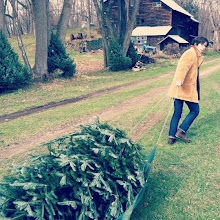
I went to Dallas for my sister's wedding, and while I was there, I stopped at Half Price Books. I shipped most of my acquisitions and I'm still awaiting their arrival, so I'll post about them later. I wanted to read Walter Benjamin at the Dairy Queen in Texas, so I carried it with me and finished it on the plane. It was the right choice.
Larry McMurtry, Pulitzer-Prize-winning author of Lonesome Dove, sits in a Dairy Queen in his hometown of Archer City reading the Walter Benjamin essay "The Storyteller," and begins reflecting on his sixty-plus years as a Texan. He writes about the effect of wide-open skies on the psyche, the spartan and silent nature of cowboys, his memories of favorite drugstore paperbacks, his finds in dearly-departed New York City bookstores. He tells stories about his grandparents, about a local dairy farmer who milks his cows before committing suicide (why?), about riding half the day to pick up the mail as a kid. He imagines how those stories might relate to "The Storyteller." How does a small town in desolate West Texas compare to, and prepare someone for, the ideas of Walter Benjamin? As a reading-obsessed Texas native, it's question I'm familiar with.
McMurtry has spent his reading life imagining and trying to understand Europe, and his writing life coming to terms with the fact that the American West doesn't have the historical depth to produce anything on par with the best Europe has to offer. A voracious reader from a young age, McMurty describes how, after a quadruple bypass surgery, he lost the will and desire to read, how he's never fully recovered it. For a while, the only books he could pick up were "the White Nile of Proust" and "the Blue Nile of Virginia Woolf." You can feel the weight of his loss.
Next time I'm in Texas, I'm going to spend a few days in Archer City: McMurtry helped turn it into a town full of books. He's been buying up casualty stock from dying urban bookstores and libraries in an attempt to keep the thrill of the find alive. There's so much, he can't even come close to sorting it all. It sounds like a book hunter's paradise...
Books it made me want to read:
Grasslands by Richard Manning
Sky Determines by Ross Calvin
Tent Life in Siberia by George Kennan



